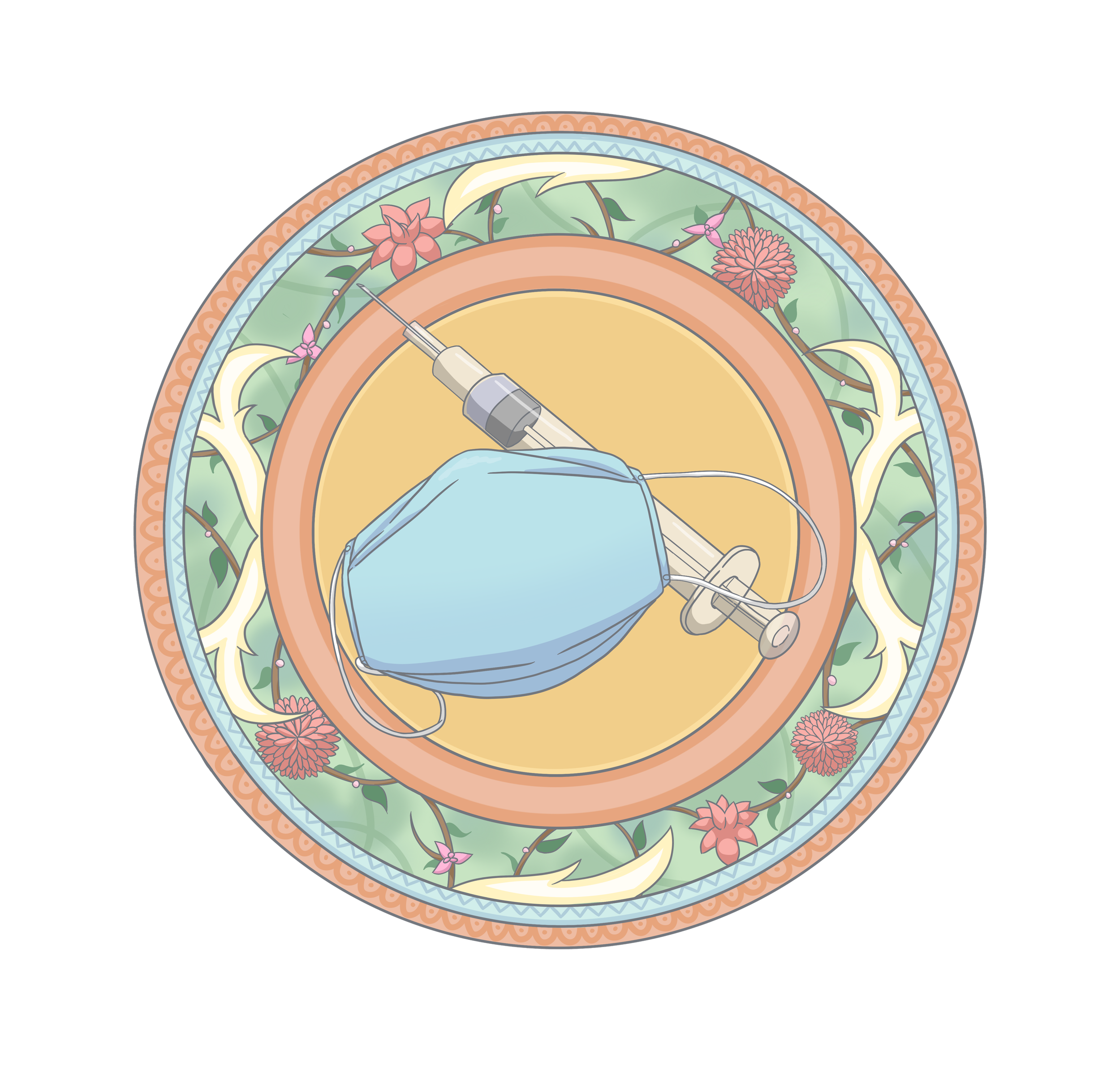Editorial

Using The "3-I" Framework to Analyze Ontario's Long-Term Care Homes System

A Deadly Combination: Conflict, Climate Change, and Covid-19 in Aden, Yemen

Neurofeedback for Self-Management of Mental Disorders
Neurofeedback therapy [1] is a type of treatment that can be used for a multitude of mental health issues. Its goal is to retrain the brain so that people can better control their thoughts and emotions. This therapy is often used to help with anxiety, depression, attention deficit hyperactivity disorder (ADHD), and post-traumatic stress disorder (PTSD), among other mental health conditions and cognitive difficulties.
During a neurofeedback therapy session, special EEG sensors are used to track your brainwaves. The electrical activity of the patient's brain is measured by electrodes placed on their scalp, and the data is subsequently processed and analyzed by a computer program. This allows patients to receive feedback about their brain wave patterns through real-time monitoring.

Challenges and Barriers to Accessing Primary Healthcare Services Among Aging Immigrants in Canada
The Healthy Immigrant Effect (HIE) initially states that immigrants arrive in Canada with better health than non-immigrants, attributed to the self-selection of healthier individuals and access to social support networks [8-11]. However, their health tends to decline over time, eventually resembling or even surpassing the health issues faced by Canadian-born individuals, especially among older adults [8,9]. This phenomenon underscores the significance of understanding and addressing the healthcare experiences of older adult immigrants in Canada, given its profound implications for their health and the healthcare system.

ADHD and the “Culture” of Psychology: A Call to Reinvestigate Biomedical Universality
Attention-deficit/hyperactivity disorder (ADHD) is biomedically defined as a childhood-onset neurodevelopmental disorder that can impact functioning in a variety of ways, including, but not limited to, executive functioning impairments, inattention, and inappropriate levels of impulsivity [1]. In a culture of increasing medicalization, amorphously-defined psychiatric conditions increasingly become the object of interest of medical anthropologists, whose scope of study includes the differential definitions and considerations of diseases across cultures and time.

Bait-and-Switch: Canada’s Immigration Retention Problem
Over the last few decades, thousands of individuals from all over the world have chosen to call Canada “home,” envisioning it as a nation of opportunity, prosperity, and a new life. In 2022 alone, Canada welcomed 437,180 immigrants, a prominent record in the nation’s history [1]. However, while immigration rates are rapidly increasing, emigration rates appear to be rising simultaneously. A recent report titled “The Leaky Bucket: A Study of Immigrant Retention Trends in Canada” by the Institute for Canadian Citizenship (ICC) for the Conference Board of Canada found that onward migration – defined as immigrants leaving their destination country for another – surpassed historical averages in 2017 and 2019 [2].

Food is Medicine for Cancer Prevention
Recent statistics show that cancer accounts for nearly 10 million deaths annually around the world, making it responsible for approximately 1 in every 6 deaths [1]. Among the millions of cases seen globally each year, approximately 400,000 of them are in children [1, 2]. This burden has driven researchers and health care professionals all over the world to dedicate their time, energy, and money to the development of treatments and therapeutic strategies, in an effort to combat cancer. While treatment is undeniably important, it is also very important to consider that between 30% and 50% of cancers are preventable [1]. Despite prevention offering the most cost-effective and long-term strategy for the control of cancer, it is an underserved area of both knowledge translation and research.

The Digital Dilemma: Prospects of Digital Technology in Post-Pandemic Times
Over the last two decades, digital technology has steadily transformed the way we live, work, and communicate. The reach and scale of information accessible at our fingertips has surpassed any previous era in human history. Arguably, however, the biggest jump in digital reliance occurred over the past two years. In the shadow of the COVID-19 pandemic, it has become increasingly clear that digital technology is no longer a secondary aspect of our lives, but fundamental.

The Ongoing Legacy of Colonization: A Look into Food Injustice in Puerto Rico
The Food and Agriculture Organization (FAO) of the United Nations (UN) states that food insecurity occurs when an individual does not have “regular access to enough safe and nutritious food for normal growth and development for an active and healthy life” [1]. Food insecurity ranges from mild to severe, with severe meaning that an individual goes without eating for more than a day [1]. A lack of a proper nutritional diet can lead to poor health outcomes such as obesity, low birth weight, stunted childhood growth, anemia, and adverse mental health effects such as a higher risk of developing anxiety or depression…

Politics, Identity, and Motivated Reasoning: Post-Convoy Reflections on COVID-19 Vaccine Acceptance
Perhaps, in an alternate pandemic universe, the 2022 protests against vaccine mandates for truckers could have played out differently.
In December 2021, the federal government announced a vaccine mandate for cross-border truckers, requiring unvaccinated truckers either to receive their COVID-19 vaccinations, or to quarantine for 14 days upon their return to Canada [1,2]…

Advancing Health Equity: The Impacts of SDoH on Mental Health and Wellbeing
Law directly impacts the health and well-being of citizens, whether positively or negatively. While the law strives towards health equity, certain social determinants of health (SDoH) put individuals at a disadvantage and undermine their wellbeing [1]. The health issues vulnerable social groups face can be attributed to the cultural, socio-economic, and environmental conditions they experience [1]…

The Migration of Mental Health
Despite being unexplored within academic discourse, migration may be a causal contributor to worsened mental health status due to the detrimental impacts migration processes can have on migrants’ health. The migratory process is highly complex, interrelated, and incites differing experiences, which may result in a significant toll being taken on individuals, their families and more broadly, their communities.…

Sculptors of Women's Bodies
Female genital mutilation and cutting (FGM/C) involves the partial or total removal of the female external genitalia for non-therapeutic reasons [1]. The World Health Organization (WHO) estimates that over 200 million girls and women alive today have undergone some form of FGM/C in approximately 30 countries in Africa, the Middle East, and Asia [2]…

Luck or A Strong Response: Why Did Pakistan Fare Relatively Better During COVID?
On 26th February, 2020 nearly a month after the World Health Organization had declared COVID-19 as a ‘public health emergency of international concern’, the then Special Advisor to Prime Minister (SAPM) of Pakistan on Health, Dr. Zafar Mirza, announced the first two reported cases of COVID-19 in Pakistan [1]…

Addressing Mental Health Service Access among Black Canadians
As conceptualized by the World Health Organization, mental health is the state of well-being where an individual can deal with stressors, be productive, and an active member within their community [1]. It extends beyond the absence of mental health conditions such as anxiety or depression to include a positive sense of well-being and the capacity to enjoy life [2]…

Rising Covid-19 Cases and Rising Vaccinations - Where is the Gap and What is the Solution?
Despite having nearly 77% fully vaccinated population and 83% of people over the age of 5 with at least one dose, Canada surpassed 40,000 new COVID-19 infections in a single day as of December 31 2021 [1,2]. The continuation of a streak of rapid infection growth is taking place amid tighter public health restrictions by the federal government and provinces/territories..

Kangaroo Mother Care: A Cost-effective Intervention for Preterm Infants in Low-and Middle-Income Countries
Most expectant mothers desire to carry their pregnancy to the full term of 39 weeks to 40 weeks [1]. However, the increasing incidence of preterm birth, or birth before 37 weeks of gestation, and lower survival rates are issues of global concern [2]. Globally, 15 million preterm infants are born every year, and more than one million die within 28 days of life [3,4].

Poverty, the Built Environment, and Asthma: A recipe for environmental injustice in the South Bronx and low-income communities globally
Every year, around 4 million children are diagnosed with asthma globally [1]. Asthma is a non-communicable chronic disease characterized by difficulty breathing due to the lungs becoming inflamed from an asthmatic trigger with no known cure [2]. But if asthma is non-communicable, how are there 4 million cases being diagnosed each year?

Ongoing Crisis of Agricultural Migrant Workers amid COVID-19
Canada’s seasonal agricultural workers make up a large portion of the agricultural industry and ensure that the country remains free of food insecurity. We often forget about the extensive labour that goes into the production of our food supply. Canada’s agricultural production and supply largely depend on migrant seasonal agricultural workers, who make up about 93% of the agricultural industry [1,16]…

A Call to Medical School Admissions Committees to Address the Ethical Implications of Voluntourism
The years of 2020 and 2021 were marked by closed borders and cancelled summer travel. Amongst the many trips that were cancelled were volunteer holidays, a common activity for eager post-secondary students applying to competitive graduate programs, especially pre-medical students. Voluntourism, the act of volunteering abroad whilst on vacation, had a growing market before the pandemic at an estimated global value of CAD $2.6 billion a year [1]…
